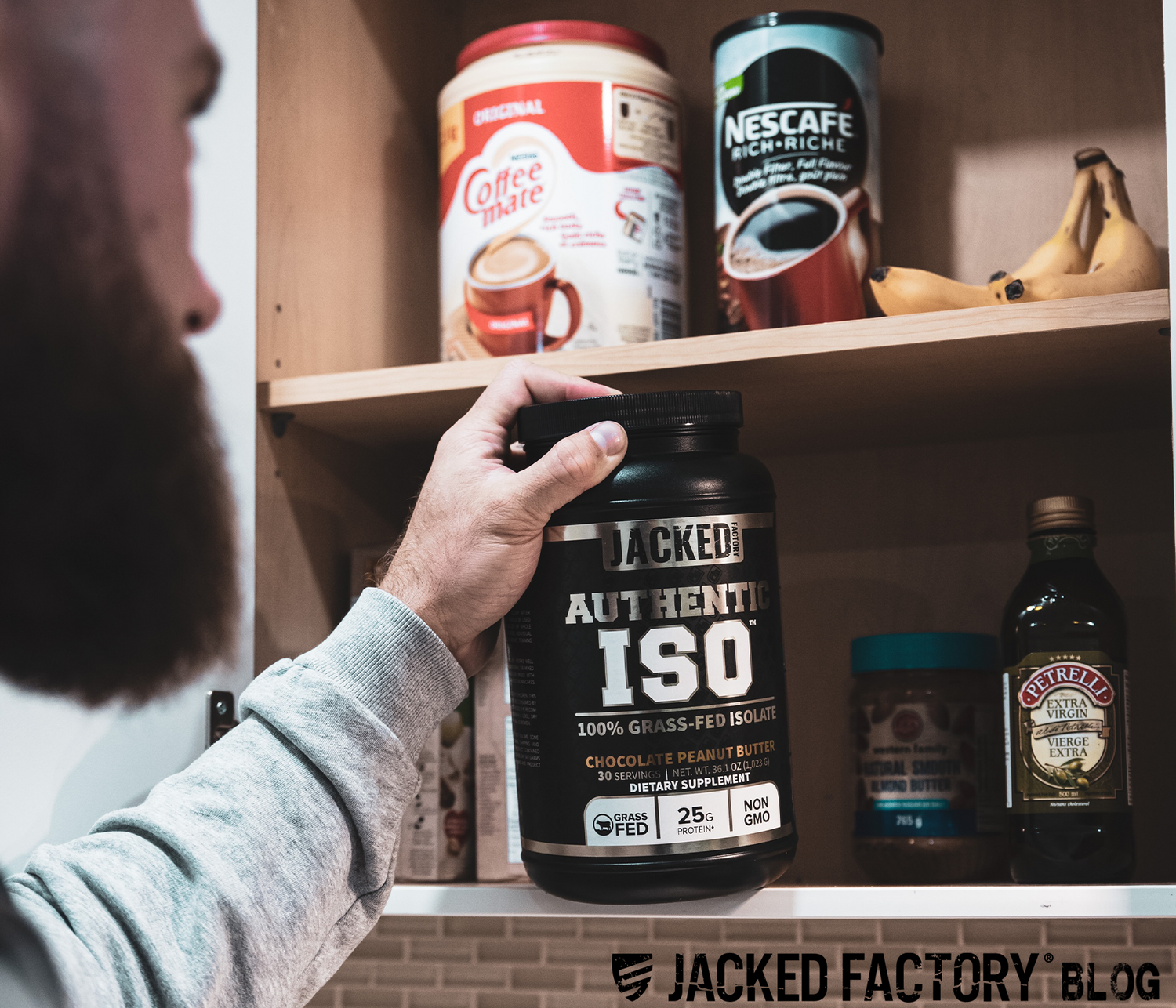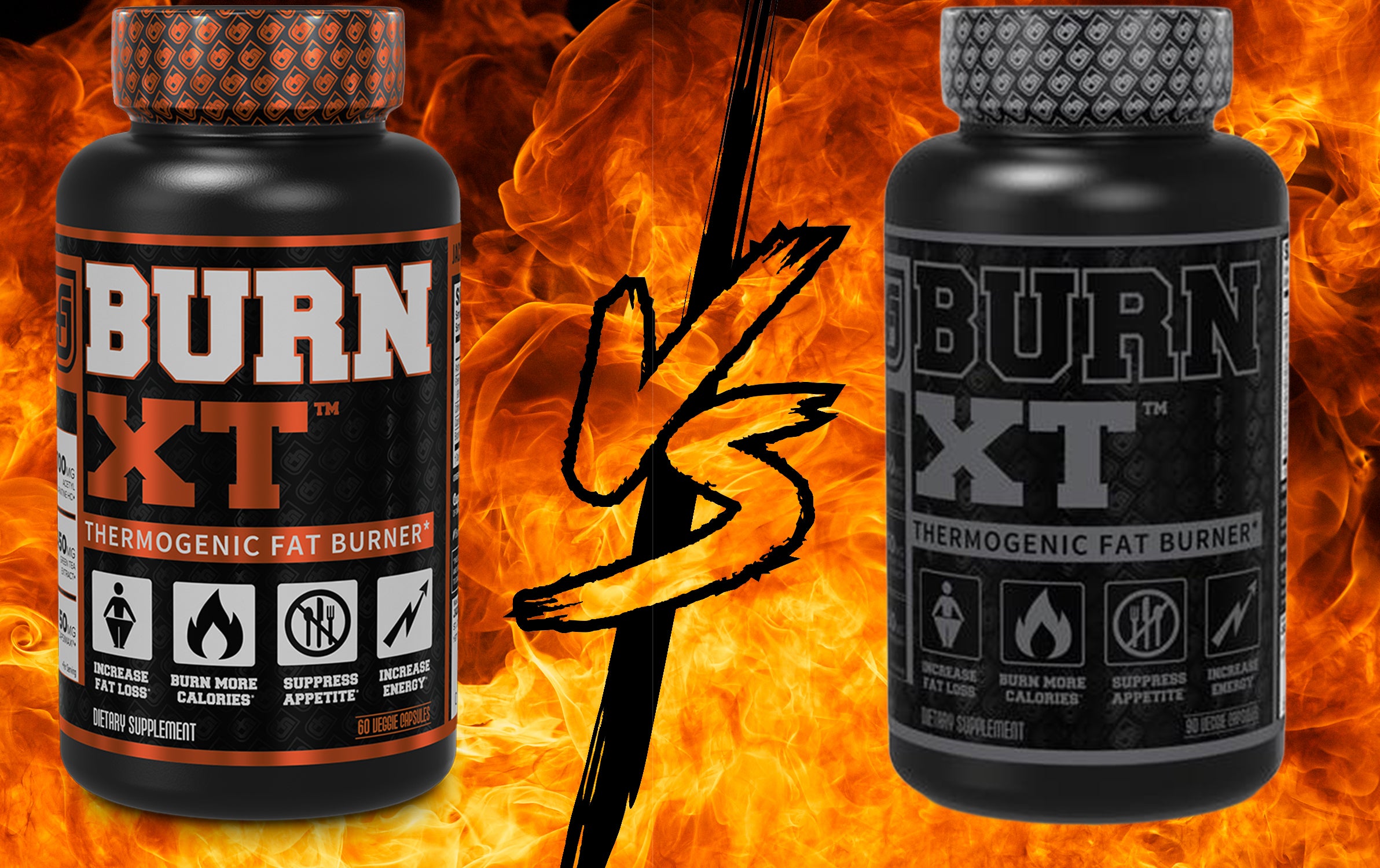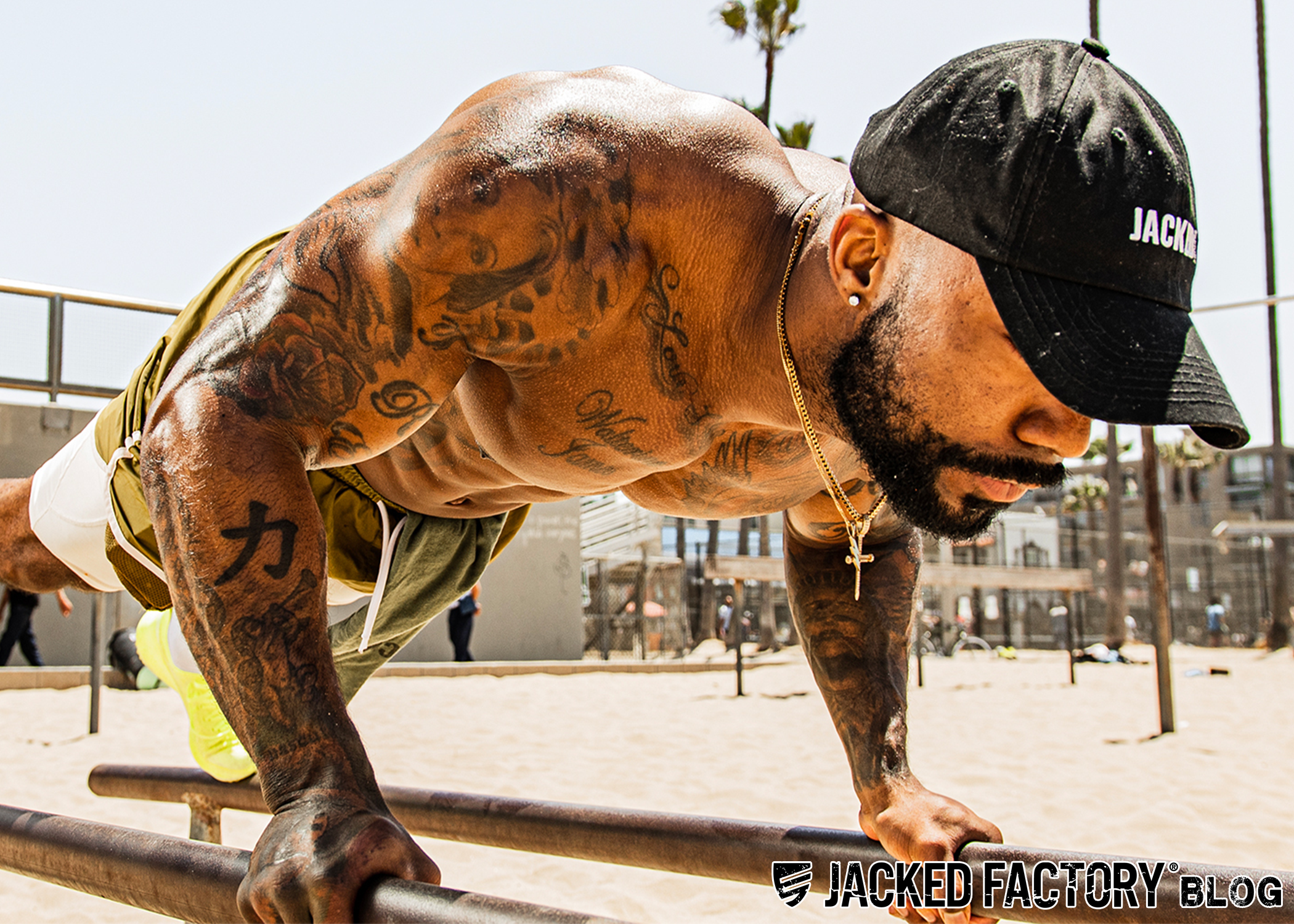What to Eat After a Workout: Tips to Improve Muscle Recovery
The proverbial "post-workout window of opportunity" presents the ideal timeframe to flood muscle tissue with muscle-building nutrients, notably fast-absorbing protein (whey protein isolate), carbohydrates, and creatine monohydrate. Doing so will significantly enhance muscle recovery and replenish glycogen stores so you can bounce back quickly for subsequent training sessions.
But you might be wondering what to eat after a workout for optimal muscle recovery. We'll break down the science of post-workout nutrition to get you off on the right foot.
Post-Workout Meal: Best Foods to Eat
Proper nutrition is critical throughout the day, but after a challenging workout, your muscles are going to be sapped of glycogen and torn down (quite literally). Therefore, post-workout nutrition must provide all nine essential amino acids (EAAs) to facilitate muscle protein synthesis and help your body recover.
Complete protein sources, such as whey protein, dairy milk, Greek yogurt, chicken breast, eggs (egg whites), and tuna, provide plenty of EAAs. In contrast, most vegan protein sources are incomplete proteins because they lack one or more EAAs. Plant-based athletes should be mindful of this, and it may be wise to consider supplementing with EAAs after exercise to ensure the body has everything it needs to repair muscle tissue.
After a workout is also when your muscle tissue is more sensitive to the anabolic effects of insulin, and therefore glucose uptake. Thus, it’s prudent to have some “fast-acting” carbs after intense training since they augment muscle protein synthesis and rapidly replenish muscle glycogen.
But don’t get too carried away by pounding tons of pure dextrose with sugar-laden sports beverages and fruit juices that seem “healthy”; these concoctions will send your blood glucose through the roof and usually have just as much added sugar as soda.
Assuming you’re not on a ketogenic diet, your post-workout carbohydrates should comprise a moderate mix of complex and simple sources, such as starchy vegetables (e.g. sweet potato and yam) or whole grains (e.g. oats, brown rice, and quinoa) with a side of fruit or topped with honey/jam.
Intuitively, you won't be following those guidelines if you're on a traditional ketogenic diet. Instead, stick to protein and fats, preferably medium-chain triglycerides (MCTs), after training.
On that note, it's certainly OK to include some fat in your post-workout meal or shake even if you consume carbs. Quality fat sources include the aforementioned MCTs, as well as extra-virgin olive oil, avocado, grass-fed butter, peanut butter, nuts/nut butter (almonds, macadamia, etc.), and free-range eggs.
Now that you have a better sense of the best foods to eat after a workout let's switch gears and look at how much to eat.
How Much Protein, Carbs, and Fat to Eat After a Workout?
Research suggests that, for most people, consuming 25–40 grams of complete protein within 30-90 minutes of finishing exercise will optimize muscle protein synthesis [1]. Ideally, this protein should be a fast-absorbing whey protein powder like Jacked Factory Authentic ISO [2]. You can also add a branched-chain amino acid (BCAA) supplement to your post-workout meal/shake. Doing so will ensure you achieve peak muscle protein synthesis [3].

While the exact amount of carbs you eat after a workout will vary according to your overall calorie and macronutrient goals and the type of exercise you engage in, evidence suggests a minimum 1:1 ratio of protein to carbs [4]. So, if you're making a post-workout protein shake with 30 grams of protein, aim for at least 30 grams of carbs to go along with it.
For sheer mass-building, a 1:3 or 1:4 ratio of carbs to protein may be optimal after a workout [5]. Those that are cutting and restricting carb intake should plan accordingly to allow for more carbs in their pre-workout and post-workout meals.
As a rule-of-thumb, a 1:4 ratio of fat to protein is sensible after a workout. Naturally, those on a very-low-carb diet should eat a bit more fat post-workout than those on a higher-carb diet.
Lastly, 3–5 grams of creatine monohydrate will suffice after training [6].
Example of What to Eat After a Workout
Let's say we have a 180-lb bodybuilder that's trying to build lean muscle mass. Their total daily macronutrient goals are 200 g protein, 360 g carbohydrate, and 70 g fat.
Here's an example of a well-rounded post-workout meal for this individual:
- 1.5 scoops Jacked Factory Authentic ISO Chocolate Peanut Butter flavor
- 80 grams (dry weight) oats
- 2 tbsp strawberry jam
- 1 tbsp peanut butter
Prepare the oats as usual, then mix in the Authentic ISO and top with strawberry jam and peanut butter. All of the above comes out to roughly:
- 42 g protein
- 105 g carbs (37 g sugar)
- 12.5 g fat
Be creative! There are many different ways to approach your food choices after a workout. It can be as simple as a post-workout snack consisting of a banana or a few rice cakes topped with jam and nut butter alongside your protein shake. The main thing is you include a complete protein source. Carbs and fats are like the "fillers" that help you meet your macronutrient goals.
Recap of What to Eat After a Workout
- The best way to kickstart the recovery process after intense training, especially resistance training, is to consume a post-workout protein shake with whey protein and an easily digestible carbohydrate source, such as the Cluster Dextrin® in Jacked Factory Carb Surge.
- If you’re vegan, brown rice protein and pea protein powders are the best substitutes for whey protein after a workout.
- Alternative to a post-workout recovery shake, consume a whole-food meal with ample amounts of complete protein, carbohydrates, and some quality fats.
- If you’re on the keto diet bandwagon or greatly restricting carbohydrates, add some medium-chain triglycerides (MCTs) to your post-workout nutrition. MCTs are perfect after a tough training session due to their rapid absorption through the intestines and hepatic portal vein, which is much quicker than the lymphatic pathway that long-chain triglycerides are digested through. MCTs are generally available in powder or oil form with a relatively neutral taste profile. Alternatively, coconut is a rich food source of MCTs.
- Research shows creatine absorbs optimally after intense training, so take your creatine supplement during this timeframe [7]. On rest days, take it before your first meal.
- If you drink a post-workout shake (as previously advised), try to eat a whole-food meal 2-4 hours later.
- Drink plenty of water! Being dehydrated after a workout is a major no-no for muscle recovery. Restricting your fluid intake is starving your body of the most abundant (and essential) macronutrient — water! In fact, water accounts for up to 70% of the average person's body mass, and a large proportion of it resides in muscle tissue, especially when muscle glycogen stores and creatine stores are saturated [8].
- For the majority of gym-goers and athletes alike, 3–5 liters of water per day should suffice. Ultra-endurance athletes and those who train for hours in a hot and humid environment may require even more.
- The timeless trick of checking the color of your urine is about as fool-proof as it gets for hydration status. If your urine is dark yellow/gold, you’re not drinking enough water. If it’s clear, you’re good to go.
Eating the Right Foods at the Right Time Can Make All the Difference
Remember, proper nutrition is vital throughout the day if you want to maximize recovery and perform your best in the gym and on the playing field. Just because you eat a solid meal or drink a shake after training doesn’t mean that’s all you need to keep the recovery and rebuilding processes churning.
While there are no hard and fast rules for meal frequency, it’s safe to say that most active individuals should aim for 3–5 solid meals spread throughout the day. Meal replacement powders are a good option if you’re very busy and don’t have time to sit down and eat, but whole foods should be your predominant source of proteins, fat, carbs, and micronutrients.





Leave a comment
All comments are moderated before being published.
This site is protected by hCaptcha and the hCaptcha Privacy Policy and Terms of Service apply.